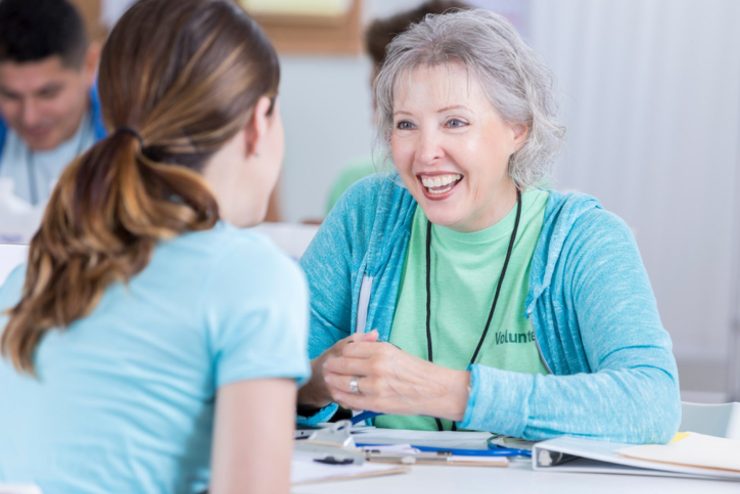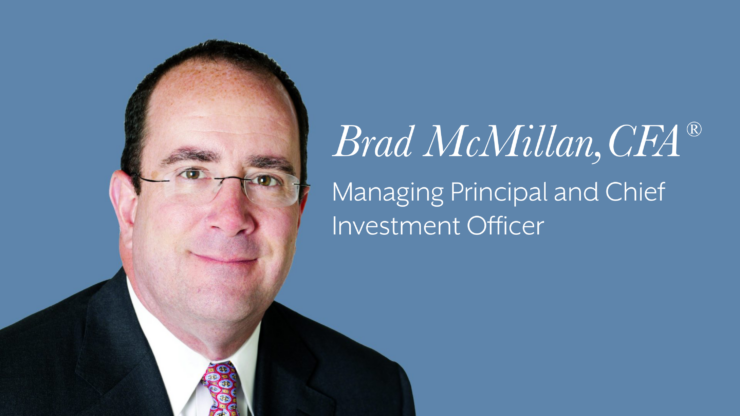Define Retirement: Volunteering Could Be a Win-Win for Retirees
February 27, 2019
In order to retire the way you want to, when you want to and as financially stable as you want to, it takes a good, solid financial plan and usually, the work of an expert financial advisor. (Will you be able to outlive your money? Are you able to leave a legacy? Are your loved ones taken care of when you’re gone?) However, when it comes time to define retirement, the definition looks different to different people.
Sometimes retirement means travel and excitement. Other times, it means living quietly and comfortably with enough time to spend with children and grandchildren. Regardless of what that dream looks like, it’s important to create a full retirement plan and have the discussion about what you want this time in your life to look like, so you’re not left with empty days when work is over. This happens to a lot of retirees. And it can lead to depression, loneliness and inactivity, which can be detrimental.
Life is often described as a marathon, not a sprint, and many who have finished out the career phase of life are left with the need to fill their days with purpose. Retirees are often inundated with advice on financial modeling, withdrawal strategies and stress testing, but even the best asset management in the world won’t give you that sense of fulfillment we strive to achieve in our Golden Years. With 70 percent of retirees linking generosity to happiness, could volunteering be a prominent piece of your holistic retirement plan? What should older members of the community consider when choosing to support non-profits?
Volunteering by the Numbers
The Bureau of Labor Statistics last shared the details of volunteering in 2016, and the report reveals that the group most likely to volunteer aren’t retirees, but rather the age group right before retirement. Those aged 45 to 54 were among the most likely to volunteer. As the group aged, they were most likely to help out via religious organizations – 42.7 percent of those older than 65 spent their time through church or faith initiatives versus just 25.4 percent among the youngest group (16- to 24-year-olds).
How to Get Started
As the data shows, there seems to be a significant drop-off in older Americans’ involvement with non-profits once they reach the typical retirement age of 65. But with retirees’ experience, wisdom and time, they may have the most to offer. Some ways that retirees can help local organizations include:
- Companionship – As older Americans struggle to remain in their home, the most valuable resource many of them can gain is friendship. There are a number of programs designed to pair up older retirees with younger ones. Simply passing the time through conversation, games and daily activities is needed more than ever before, and the just-turned-65 crowd offers an energetic supply of volunteers. For example, with the Pets on Wheels organization, you can visit the elderly in nursing homes, assisted living communities, hospitals and facilities for the physically and mentally challenged.
- Teaching and Consulting – It’s easy to translate pre-retirement skillsets into the talent needed at similarly aligned non-profits. For example, a farmer could offer skills to a 4-H group or a local nature conservatory; financial planning alumni can advise on long-term market trends to current finance professional groups; retired business owners can offer their insight on leadership by sitting on a board of a non-profit. A helpful site that may be a good starting point for interested retirees is VolunteerMatch.org, which helps non-profits and volunteers match up based on aligning interests and passions.
- Trying Something New – While it makes sense that an accountant would want to offer pro-bono services to a non-profit, the third-act of life is also an ideal time to stretch yourself. By partnering with a non-profit far outside your own experiences, it’s possible that new hobbies, skills and connections will help bring a different kind of enrichment to retired life. The same accountant who spent most of his or her life at a desk may find happiness in building things through a home-rehab program, for example. Consider trying completely new things for maximum fulfillment from retirement planning.
Maryland, alone, has more than 32,000 registered non-profits, using the services of more than 1.3 million volunteers offering almost 194 million hours of service. As a retiree, you can have a significant impact on making sure those in need can continue receiving vital services, from food and shelter to educational services. Today’s seniors have a unique opportunity to balance rest and relaxation with a dedication to others. By coming up with a weekly schedule that embraces self-care with service, a happy, holistic retirement is in reach.
How do you define retirement?
Let the Certified Financial Planner® professionals at Williams Asset Management help with your wealth management needs. Whether you need comprehensive and holistic financial planning or investment management, we can help! We are fee-based, independent financial advisors located in Columbia, the heart of Howard County, Maryland. Schedule your complimentary consultation today by calling (410) 740-0220!
Share on social media:


